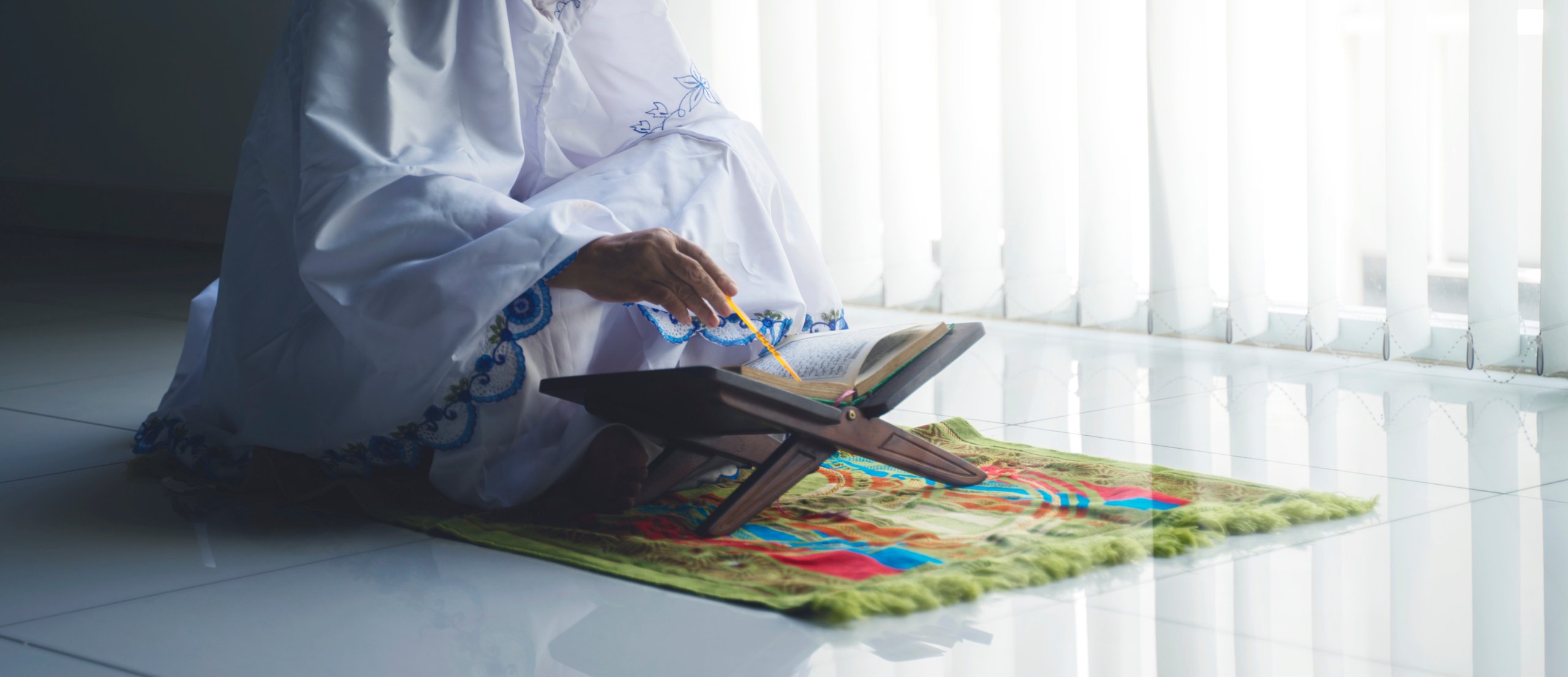Can A Menstruating Woman Read and Touch the Quran?
Shafi'i Fiqh
Answered by Shaykh Irshaad Sedick
Question
I understand that the preponderant opinion of our School disallows recitation (qira’atan) and touching of mushaf during hayd. However, are there differing opinions within the Shafi‘i School regarding this issue? And what rulings and observances would be necessary if one adopted this alternate view?
Answer
There is a view in the Maliki School that allows her to recite it in her menses and touch it. Please refer to this answer for further details on what rulings and observances should be considered.
The Majority (Including the Shafi‘i) View
Imam Nawawi (may Allah have mercy on him) said: “Our school holds that it is prohibited for someone in a state of janaba and a menstruating woman to read the Quran, whether a little or a lot, even a single verse. This is also the opinion of most scholars.” [al-Majmu‘ Sharh al-Muhadhdhab 2/182]
They supported their view with evidence, including:
One: Allah (Most High) says, “None touch it except the purified” [Quran, 56:79].
Ibn Kathir (Allah have mercy on him), after mentioning that the Companions interpreted this verse to refer to the angels, said, “Others have said: ‘None touch it except the purified’ means those free from major ritual impurity and minor impurity.
If the intended meaning is (the angels), then mentioning their purity here indicates the necessity of purity for others when touching it for a greater reason.
Two: What was reported by Abdullah ibn Abi Bakr ibn Muhammad ibn Amr ibn Hazm:
That is the letter the Messenger of Allah, peace be upon him, wrote to Amr bin Hazm; it states:
“None should touch the Quran except the pure.” [Malik, Al-Muwatta’, 2/278] and authenticated by Imam Ahmad and Ibn Abdul Barr said, “The scholars received it with acceptance and acted upon it.” [Al-Istidhkar, 2/458]
Three: The well-known ruling among the Companions (Allah be pleased with them) and Followers, to the extent that there was almost consensus on it,
and the famous statements of the Companions about prohibiting menstruating women and those in a state of major ritual impurity from reciting the Quran and touching the Mushaf, and their statements have the effect of being considered elevated to the Prophet (hukm al-raf‘).
Refer to Musannaf Ibn Abi Shayba (Chapter: A Man Without Ablution and a Menstruating Woman Touching the Mushaf) (2/256) and Musannaf ‘Abd al-Razzaq (Chapter: Can a Menstruating Woman and One in a State of Major Ritual Impurity Remember Allah) (1/335).
Remembrance from the Quran
As for reciting the Quran’s remembrances by someone in a state of major ritual impurity or menstruation, such as the etiquettes of riding: “Exalted is He who has subjected this to us, and we could not have [otherwise] subdued it…” [Quran, 43:31], or in the event of a calamity: “Indeed, we belong to Allah, and indeed to Him we will return” [Quran, 2:156], etc.; this is permissible if it is with the intention of remembrance, and not with the intention of Quran recitation.
Imam Khatib Shirbini (Allah have mercy on him) says: “It is permissible as long as it is not intended as recitation of the Noble Quran; because it is not considered Quran except with intention and setting the intention.” [Al-Iqna’ fi Hall Alfaz Abi Shuja’, 1/236-237] Allah knows best.”
The Maliki View
The Maliki School permits reciting the Quran for the menstruating woman while her bleeding is continuous, unconditionally. However, if the bleeding stops, it is not permissible for a woman to read until she performs the complete ablution (ghusl) unless she fears forgetting what she has memorized. [Dar al-Ifta al-Misriyya]
They also permit touching the Mushaf for those learning or teaching the Quran; this permission applies only during the act of learning or teaching. [ibid.]
Thus, it is preferable to follow the opinion of the majority to avoid dispute. However, suppose a woman finds difficulty and hardship in this and needs to recite the Qur’an or touch the Mushaf for memorization, teaching, or employment in teaching. In that case, it is permissible for her to follow the Maliki school in this regard, and there is no sin or blame on her for doing so.
I pray this is of benefit and that Allah guides us all.
[Shaykh] Irshaad Sedick
Checked and Approved by Shaykh Faraz Rabbani
Shaykh Irshaad Sedick was raised in South Africa in a traditional Muslim family. He graduated from Dar al-Ulum al-Arabiyyah al-Islamiyyah in Strand, Western Cape, under the guidance of the late world-renowned scholar Shaykh Taha Karaan (Allah have mercy on him), where he taught.
Shaykh Irshaad received Ijaza from many luminaries of the Islamic world, including Shaykh Taha Karaan, Shaykh Muhammad Awama, Shaykh Muhammad Hasan Hitu, and Mawlana Abdul Hafeez Makki, among others.
He is the author of the text “The Musnad of Ahmad ibn Hanbal: A Hujjah or not?” He has been the Director of the Discover Islam Centre and, for six years, the Khatib of Masjid Ar-Rashideen, Mowbray, Cape Town.
Shaykh Irshaad has fifteen years of teaching experience at some of the leading Islamic institutes in Cape Town). He is currently building an Islamic podcast, education, and media platform called ‘Isnad Academy’ and has completed his Master’s degree in the study of Islam at the University of Johannesburg. He has a keen interest in healthy Prophetic living and fitness.
